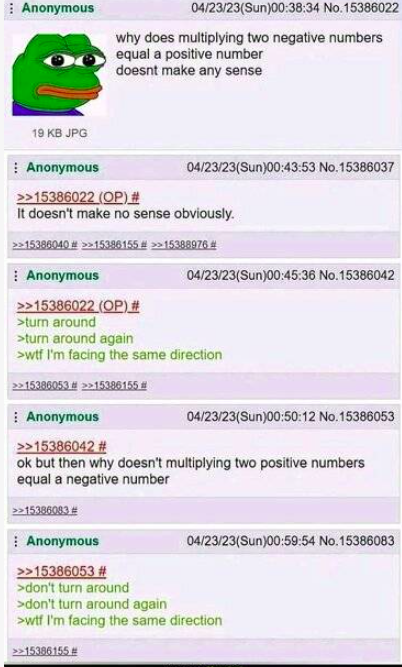-
Posts
2040 -
Joined
-
Last visited
-
Days Won
24
Content Type
Profiles
Forums
Events
Everything posted by Eise
-
Hmmm... Don't stars produce much more energy than the metabolism of life? Latter is chemical reactions, stars nuclear reactions, which produce about a factor of 1 million more energy.
-

Entanglement (split from Using entanglement to achieve...)
Eise replied to bangstrom's topic in Speculations
@bangstrom: starting the same chain of misunderstandings again? See: If you have any new ideas, let us know otherwise this discussion is meaningless. The other thread was closed because we were running in circles. -

Measuring c (split from Is foundational physics stuck?)
Eise replied to DanMP's topic in Speculations
Eh? Does it help when I say 'electromagnetic radiation' instead of 'light'? No idea why you think that. -

Measuring c (split from Is foundational physics stuck?)
Eise replied to DanMP's topic in Speculations
... and you forget that the speed of light, funny as it sounds, is not about the speed of light: c is the maximum speed of causality, and as a consequence, all kinds of particles without rest mass, have that speed. At the moment, we only know of 2 phenomena that have exactly that speed: light and gravity. Another way to see it, is that in spacetime the conversion factor of time to distance is c. Dependency of the speed of light in a medium is of no importance at all. So it is both. it is a consequence of the causal structure of spacetime, i.e. enforced by it. -
I have good reasons to state that we have free will, but I seldom feel guilty. But I do feel responsible. It means that I must accept the consequences of my actions.
-
Oh, I can wait. I trust you that there is no danger in the experiment. Or? Joigus?
-
Shouldn't the sum of all spins of the fermions in my body sometimes add to n + 1/2 so I am a fermion as a whole? Then by turning around 2 times I should look in the opposite direction. I try several times per day, but it never happened. Physics is wrong!
-
Huh? I do not see it on my tablet, but I posted in Chromium on my Linux notebook. And there I see it again. But when I 'fly over' I see 'unavailable'. Maybe local cache. Trying again:
-
Found this elsewhere:
-
Yesterday was my (last) chance: Wide angle, contrast enhanced: Standard, contrast enhanced and cropped: Luckily enough the plane did not collide with the comet. And what it was like when I arrived at the high place (cropped to fake a panorama picture ): Close to the antenna a bit on the left you can see Venus. The mountain is the Pilatus in Canton Lucerne, Switzerland. Camera a Sony alpha, exposure time 30 second ISO 800. PS Height 1020 m.
-

Does science provide a path to a meaningful life?
Eise replied to Night FM's topic in General Philosophy
No, that is what is called the 'naturalistic fallacy', also known as 'one cannot derive an 'ought' from an 'is''. But your title is another question: "Does science provide a path to a meaningful life?". In a very basic sense, every person striving for something, whatever, leads a meaningful life. It could be even unethical. But leaving that aside, people derive their meaningful life from many things: successfully raising kids, getting rich or powerful, help other people, making beautiful woodworking (how do I get at this example? I wonder...), trying to improve on their moral stance, trying to understand the universe... Which is science. Personally I think science can lead in another way to meaningful life, not just because one finds it 'interesting' or for the usage of its results in technology. Understanding the universe and our place in it can be a spiritual experience. I even once heard something like that from a theology student: he found the essence of religion the realisation that we are just a dust corn in the universe. Of course I like the factual way, as science goes, much better than a theological 'understanding', based on fantasies or old mythologies. And last but not least (being very subjective now), I would plead for studying philosophy. Not freewheeling philosophy (that is fantasy not necessarily with gods or magic), but philosophy grounded as well in science as in our daily experience. The nice thing of philosophy is that it brings all together: it contains also the reflections on what facts, values, and a meaningful life are. So philosophy in this sense is the highest endeavor a human can do . So, I think this was my most subjective posting in this forum. -
I think it would be a good idea to suppress theological discussions. Religion is surely interesting from a scientific or philosophical point of view. But I agree that internal theological topics have nothing to do with science, and therefore have no place here. Topics like history of religion, psychology of religion, sociology of religion etc would fit here. But not questions like why/how Adam and Eve were driven out of paradise, Paul's position about women, etc. On a personal note, I notice that sometimes I would like to participate more, but at the moment I am running against a lack of energy: there is quite some stress in my personal and professional life, and then post comments that fit to my standard of quality postings, it feels just like work. An example is the thread 'Where does atheist morality come from?' I felt a lot of possible reactions, but spending half an hour to write a good posting was just too much. There were a few reactions that mentioned points I had in mind, and so I let it be.
-
Maybe this distinction can help others to clarify what you want to say to them: the difference between a valid argument and a sound argument: From here.
-
Then give a better example of what you mean. Of course conspiracies exist. But in general they are on a much smaller scale: the more people are involved, the more difficult it becomes to keep it secret.
-
If you read the Wiki article you must have noticed that the Epicurean paradox is a trilemma. If a god knows everything and has unlimited power, then they have knowledge of all evil and have the power to put an end to it. But if they do not end it, they are not completely benevolent. If a god has unlimited power and is completely good, then they have the power to extinguish evil and want to extinguish it. But if they do not do it, their knowledge of evil is limited, so they are not all-knowing. If a god is all-knowing and totally good, then they know of all the evil that exists and wants to change it. But if they do not, which must be because they are not capable of changing it, so they are not omnipotent. You only mention one of the options to get out of this 3-folded horn.
- 1 reply
-
1
-
God couldn't do better? You ate from the wrong tree, Night FM. Maybe, when God warned Eve, he spoke from experience...
-
'The problem of evil' does not apply to natural processes. And yes, the argument is not logically compulsive, but it is strong. Given that such natural disasters occur, only a few conclusions are possible: God is not omnipotent, i.e. he could not avoid the disaster happening God is not omnibenevolent, i.e he has no problem with killing humans, good and bad God does not exist at all. Example of the second case...
-
As hiding the fact that the earth is really flat, it needs a massive conspiracy: astronomers with their pictures making satellites, correct predictions of events like moon- and sun eclipses), GPS, time zones, Foucault pendula, etc. It is impossible to uphold a believe in a flat earth, without also believing in a massive conspiracy. Chemtrails, which I also call a conspiracy theory, would need a much smaller conspiracy.
-
Take the Lisbon 1755 earthquake. It occurred on All Saint's Day, during many church services. It put the omnipotence and omnibenevolence of God in doubt for many people. How could God do (or allow) something like that? The easy answer of course is, there is no God, and the earthquake was just a a-moral, natural process. Nature is not a person, so you cannot morally blame it.
-
That is the shortest and clearest explanation i have ever seen!
-
Please show this with a Minkowski spacetime diagram. And that it is an experimentally proved fact doesn't matter to you? See the Hafele–Keating experiment, also mentioned above.
-
It has nothing to do with having a different point of view. It has to do with giving a well-argued point of view. This is a science discussion site. Only when people exchange good arguments, interesting discussions can arise. Science is about a reality that we share, so discussing about this reality, a consensus should theoretically be possible. Having said that, what happens here is more like (bad) philosophy. Philosophy is methodologically a bit more complicated case than science, because this shared reality is not a given. Philosophy's 'material' is how we actually think, and as it is clear that everybody thinks differently. Still, humans share a lot in how they think, and philosophy can help to flesh this thinking out, making it explicit. And then we can also see our differences better, and argue about them. So having not a shared reality, as in science, presses an even heavier load on formulating clear and argumentatively correct arguments. There is no final arbiter in philosophy. What you are doing is spawning ideas that pop up in your mind. See one of the lines in my disclaimer: "At its best, philosophy is intellectual reverse engineering, methodically dismantling bad habits of thought that sustain intellectual pandemics and replacing them with better thinking tools."
-
Who says these ants belong to the megalopolis? Did you lookup if the ants you saw are of the same kind who built the ant hill? Definitively not. You just spew thoughts that come up in your mind reading the postings here, and reading the Ant dialogue. Were this thread in the Philosophy section, I would be even harsher. Ah, it is not the first time: Not wasting my time here anymore on you.
-
I can imagine that, it just did not drop from your mind on your keyboard... Yep. It is a great analogy to neurons (ants) one one side, and the mind (ant state) at the other. And the book as a whole had a pretty 'intellectual' impact on me, many years ago. The dialogue can also be found in The mind's I by Hofstadter and Dennett. If these are your initial thoughts on the dialogue, then you have some funny triggers in your mind. I do not recognise in anyway that your thoughts have anything to do with the dialogue. I thought that too. To my relief, there lived no ants anymore. From the link of Joigus:
-
Yep. Under capitalism humans exploit other humans. Under communism, it is the other way round. (Not mine of course...)






